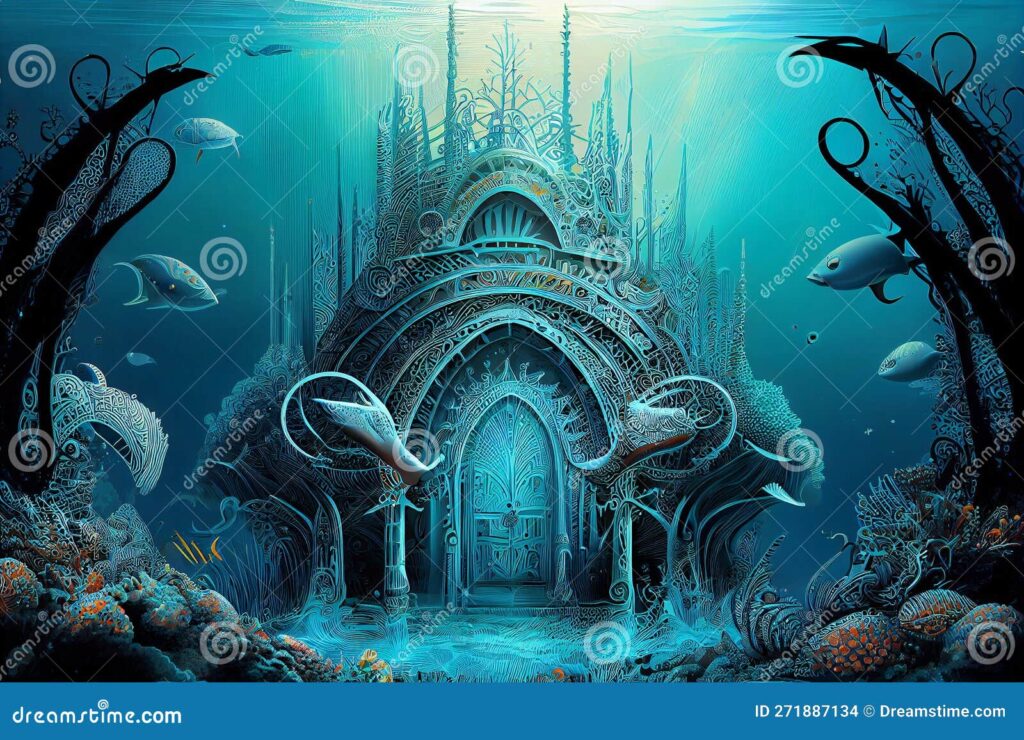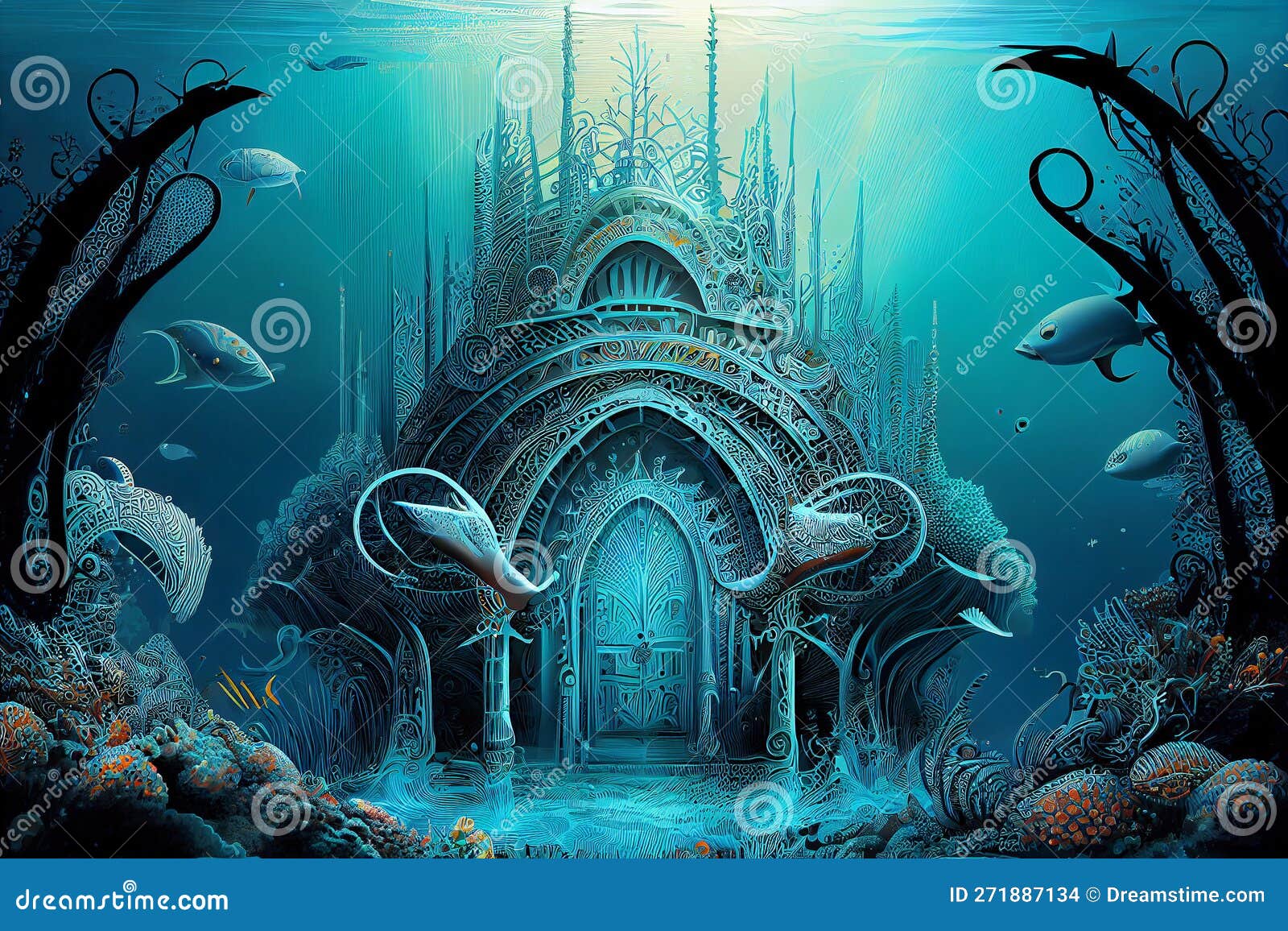
Atlantis: Unveiling the Myths and Mysteries of the Lost City
The legend of Atlantis, a technologically advanced and utopian island civilization, has captivated imaginations for millennia. First mentioned by the ancient Greek philosopher Plato in his dialogues Timaeus and Critias, Atlantis is described as a powerful naval force that challenged ancient Athens before sinking into the Atlantic Ocean in a single day and night. The story, though presented by Plato as historical fact, is widely regarded as a philosophical allegory intended to illustrate the dangers of hubris and the ideal society.
Despite its likely fictional origins, the allure of Atlantis persists. Countless books, documentaries, and films have explored the possibility of its existence, sparking debates among historians, archaeologists, and armchair adventurers alike. This article delves into the origins of the Atlantis myth, examines the various theories surrounding its potential location, and explores the cultural impact the legend has had on society.
The Origins of the Atlantis Myth
Plato’s account provides the primary source material for the Atlantis story. In his dialogues, he describes Atlantis as an island larger than Libya and Asia Minor combined, located beyond the Pillars of Hercules (now the Strait of Gibraltar). Its inhabitants were descendants of Poseidon, the Greek god of the sea, and were initially virtuous and just. However, as they grew in power and wealth, they became corrupted by greed and ambition. This moral decay ultimately led to their downfall, as the gods, angered by their wickedness, sent earthquakes and floods that submerged the island beneath the waves.
It is crucial to understand the context in which Plato wrote about Atlantis. He used the story as a vehicle to explore his philosophical ideas about ideal governance, social order, and the consequences of moral corruption. The story of Atlantis served as a cautionary tale, highlighting the importance of virtue and wisdom in maintaining a stable and prosperous society. Therefore, it’s likely that Plato never intended for Atlantis to be taken as a literal historical account.
The Search for Atlantis: Theories and Speculations
Despite the lack of concrete evidence, the search for Atlantis has continued for centuries. Numerous theories have been proposed, suggesting various locations for the lost city. Some of the most prominent theories include:
- The Atlantic Ocean: The most obvious, and perhaps least likely, location is somewhere in the Atlantic Ocean, as Plato described. However, extensive oceanographic research has failed to uncover any evidence of a large, sunken landmass.
- The Mediterranean Sea: Another popular theory places Atlantis within the Mediterranean Sea, possibly near the island of Santorini (Thera). The volcanic eruption of Thera around 1600 BC, which devastated the Minoan civilization, is often cited as a potential inspiration for the Atlantis myth. [See also: The Minoan Civilization: A Lost World of Art and Innovation]
- The Azores Islands: Some researchers suggest that the Azores Islands, a group of volcanic islands located in the North Atlantic Ocean, could be remnants of Atlantis. Geological evidence suggests that these islands were once part of a larger landmass that has since subsided.
- The Bimini Road: The Bimini Road, a submerged rock formation near Bimini Island in the Bahamas, has also been proposed as a potential link to Atlantis. However, most geologists believe that the formation is a natural geological feature.
- Antarctica: A more outlandish theory suggests that Atlantis was located in Antarctica and was destroyed by a cataclysmic event that shifted the Earth’s axis. This theory lacks any scientific support.
It is important to note that none of these theories have been definitively proven. The lack of archaeological evidence and the inconsistencies between Plato’s description and the proposed locations make it highly improbable that Atlantis was a real place in the way it is often imagined.
The Cultural Impact of the Atlantis Legend
Regardless of its historical accuracy, the legend of Atlantis has had a profound impact on Western culture. It has inspired countless works of literature, art, music, and film. The idea of a lost, advanced civilization has resonated with people across generations, serving as a symbol of human potential, technological progress, and the dangers of unchecked ambition.
In literature, Atlantis has appeared in works by Jules Verne, H.P. Lovecraft, and numerous contemporary authors. These stories often explore themes of technological advancement, social utopia, and the consequences of tampering with nature. The fictional city serves as a blank canvas for exploring different societal models and moral dilemmas.
In film and television, Atlantis has been depicted in various ways, from Disney’s animated adventure Atlantis: The Lost Empire to the science fiction series Stargate Atlantis. These adaptations often emphasize the technological prowess of the Atlantis inhabitants and the mysteries surrounding their disappearance. [See also: Exploring Ancient Civilizations in Modern Cinema]
The Atlantis myth has also influenced various philosophical and spiritual movements. Some believe that Atlantis was a real place inhabited by enlightened beings who possessed advanced spiritual knowledge. This belief has led to the development of various New Age philosophies and spiritual practices that seek to connect with the wisdom of Atlantis.
The Enduring Appeal of Atlantis
The enduring appeal of Atlantis lies in its ability to tap into our deepest desires and fears. It represents the potential for human achievement and the fragility of civilization. The story of a technologically advanced society destroyed by its own hubris serves as a cautionary tale about the importance of balance, wisdom, and respect for the natural world.
While the existence of Atlantis remains unproven, the legend continues to inspire and intrigue. It reminds us of the power of myth and the enduring human fascination with the unknown. Whether Atlantis was a real place or a philosophical allegory, its story continues to resonate with us today, prompting us to question our own values and the direction of our society. The mystery of Atlantis, therefore, is less about finding a lost city and more about understanding ourselves.
Ultimately, the story of Atlantis encourages critical thinking and the exploration of different perspectives. The lack of definitive evidence allows for endless speculation and interpretation, fostering creativity and intellectual curiosity. The legend of Atlantis serves as a reminder that the pursuit of knowledge is a continuous journey, and that the answers we seek may lie not in finding concrete evidence, but in the questions we ask along the way. The mythical island of Atlantis persists in our collective imagination, not as a historical enigma, but as a powerful symbol of human potential and the enduring quest for understanding.

